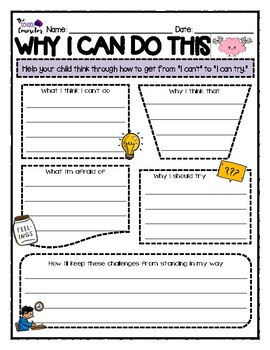Building Resilience
Overcoming difficult situations
12-year-old Sanjana went on a camping trip, hoping to make new friends and try kayaking. Unfortunately, most of the kids were already in groups, and she couldn’t join them. When she returned home, she said, "I'll never go camping again! Everyone hates me!"
What just happened?
Sanjana is feeling scared and worried that she won't be able to make friends. She needs to learn how to cope with this experience and try again. She needs to develop resilience.
What does resilience mean? Why is it important?
Resilience means the ability to recover from difficult life events and take risks again. While the specific difficulties vary by age – from making friends for a 4-year-old to academic pressures for a teenager – the underlying need to believe in oneself and overcome obstacles remains constant. Resilience empowers children to explore new experiences without fear of failure.
How Can We Build Resilience?
Build Self-Esteem - Self-esteem is the difference between who we want to be and who we think we are. Our role as adults is to help the child shape who they think they are, i.e., their perception. Words of affirmation, trusting them with small tasks, and helping them navigate failure can build self-esteem. Simple words like, “I see you chose your clothes today, you are so good at decision making,” or “I see you felt confused about what to eat today, let’s discuss a way to get better at that,” can help.
Build coping strategies- The period between encountering a tough situation and bouncing back from it is crucial. Equip them with mindfulness techniques like deep breathing and meditation, encourage participation in healthy activities such as sports or yoga, and promote creative outlets like drawing or playing an instrument. These strategies help children regulate their emotions and navigate tough situations.
Build Problem-Solving Skills - Involve your 4-year-old in their food choices, your 10-year-old in choosing their own timetable, and your 14-year-old in home appliance choices. This activates their cognitive and decision-making skills.
Create a Safety Net - Children are more likely to explore new things if they know that they have a support system no matter what. Simple words like, “Hey, remember we are here for you no matter what,” before a child is about to explore something new can help. It gives them that assurance that they have you at the end of the day.
Reflection Skills - Oftentimes, tough situations can lead to kids labeling themselves and deciding on a fixed version of who they are. Asking them, “Let’s discuss how we can navigate this situation,” can help them differentiate between thoughts, facts, feelings, and actions. It can help them shift from “I am horrible at cooking” to “I am still learning how to cook.”
Create a strength based perspective- Help the child focus on their strengths and look at the rest as areas of development. A deficit-based perspective focuses on what a child cannot do, labeling their challenges as weaknesses. For example, "Vedant has difficulty with reading comprehension." Conversely, a strength-based approach highlights a child's abilities and potential. It reframes challenges as opportunities for growth. For instance, "Vedant is a creative thinker who loves storytelling and can visualize characters vividly.”
Remember, navigating life can be tough. By providing a non-judgemental safe space we can help children build resilience and go through life as champions!
Related articles:








